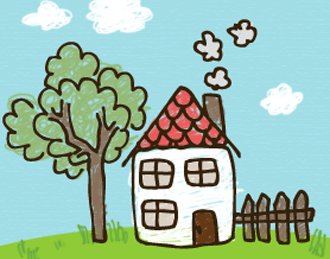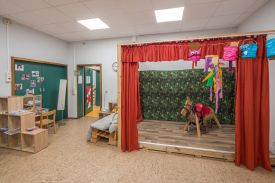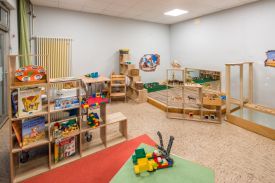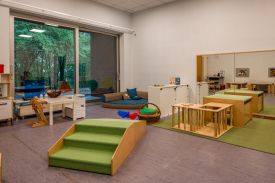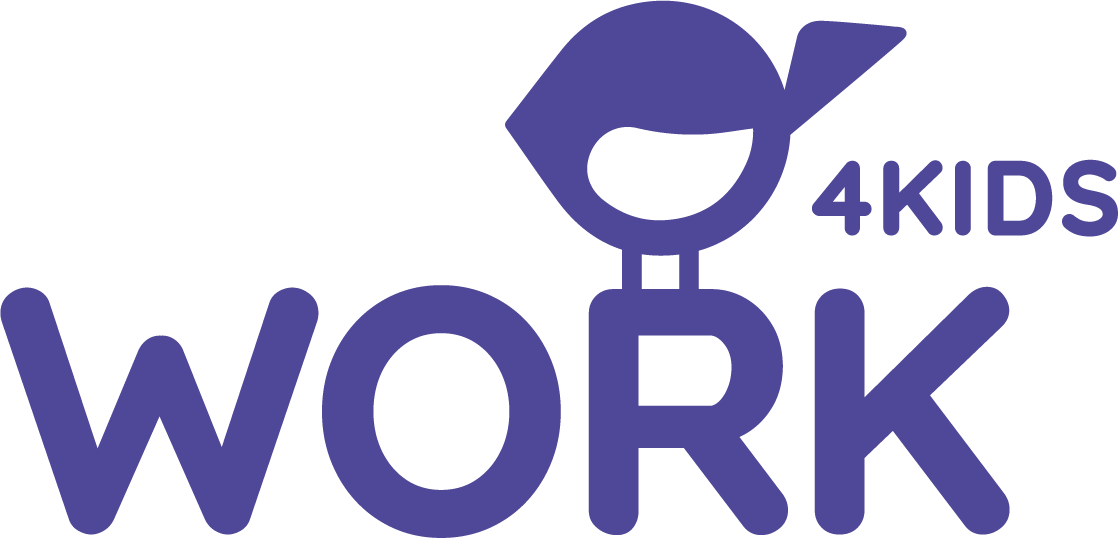Introduction/specifics
We introduce ourselves:
We are a day care centre for children from one year old until they start school and work under the sponsorship of the Magistrate of the University City of Marburg. Our pedagogical way of working, which has been established since 2017, according to the situational approach and needs-oriented work, lives from and with the different needs of the children cared for in our day care centre and their families. Education, upbringing and care in day care centres are in constant flux due to legal foundations as well as changing external and organisational factors.
The day care centre consists of two core groups in functional rooms and a crèche group.
Our work focuses on movement, language, nature and sustainability.
The midday meal is prepared by a kitchen worker. We pay attention to a balanced menu with regional, organic and seasonal ingredients.
There is also the possibility of integrative support for children with special care needs.
Rooms
Our facility has several functional rooms, a role play room, a building room with a workshop, a creative area, a crèche group, a sanitary area, a corridor with cloakrooms and a small play area, a library, a bistro, a bedroom and a kitchen.
Outdoor area
The outdoor play area is designed close to nature. There are two sand play areas, climbing, swinging and sliding facilities, a tree house, lots of bushes and trees as retreat areas as well as an adjoining piece of forest. The entire area is enclosed by a fence.
We look forward to welcoming you to our facility.
You are welcome to contact us by telephone on 06420 233 or
by e-mail to Kiga-michelbach@marburg-stadt.de
to get in touch with us.

